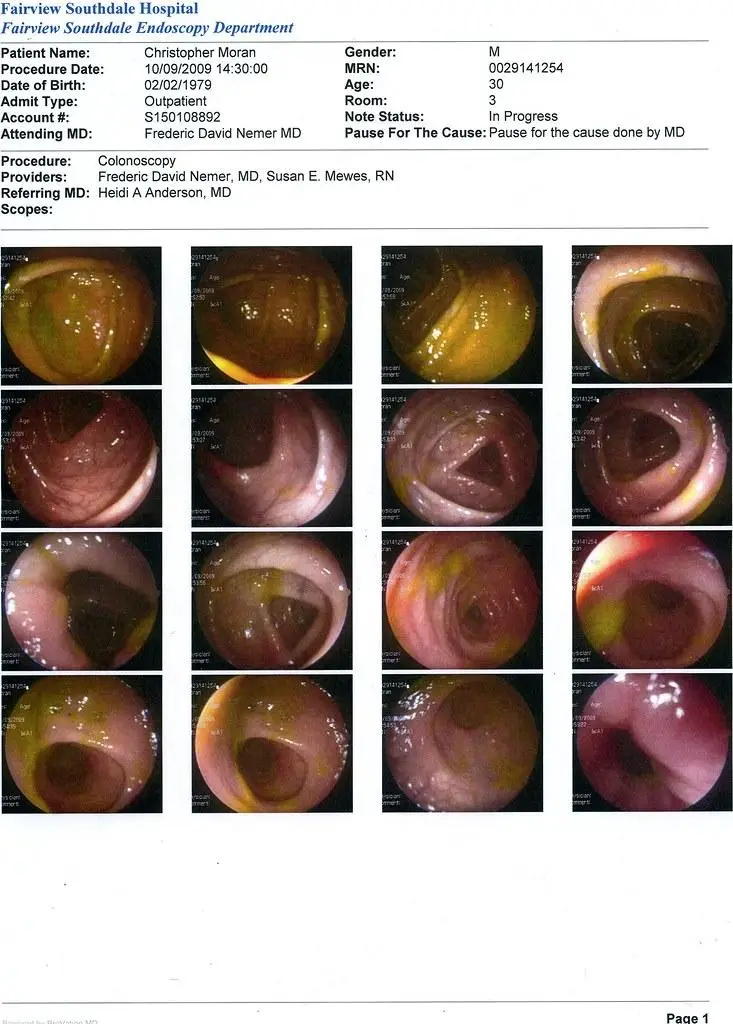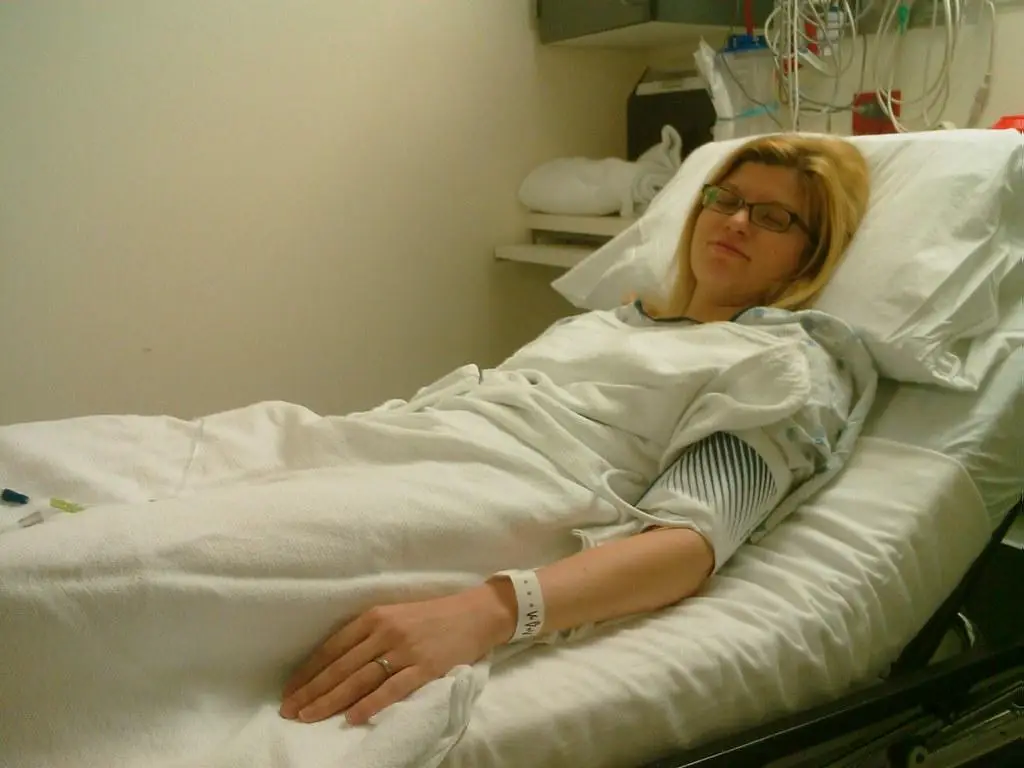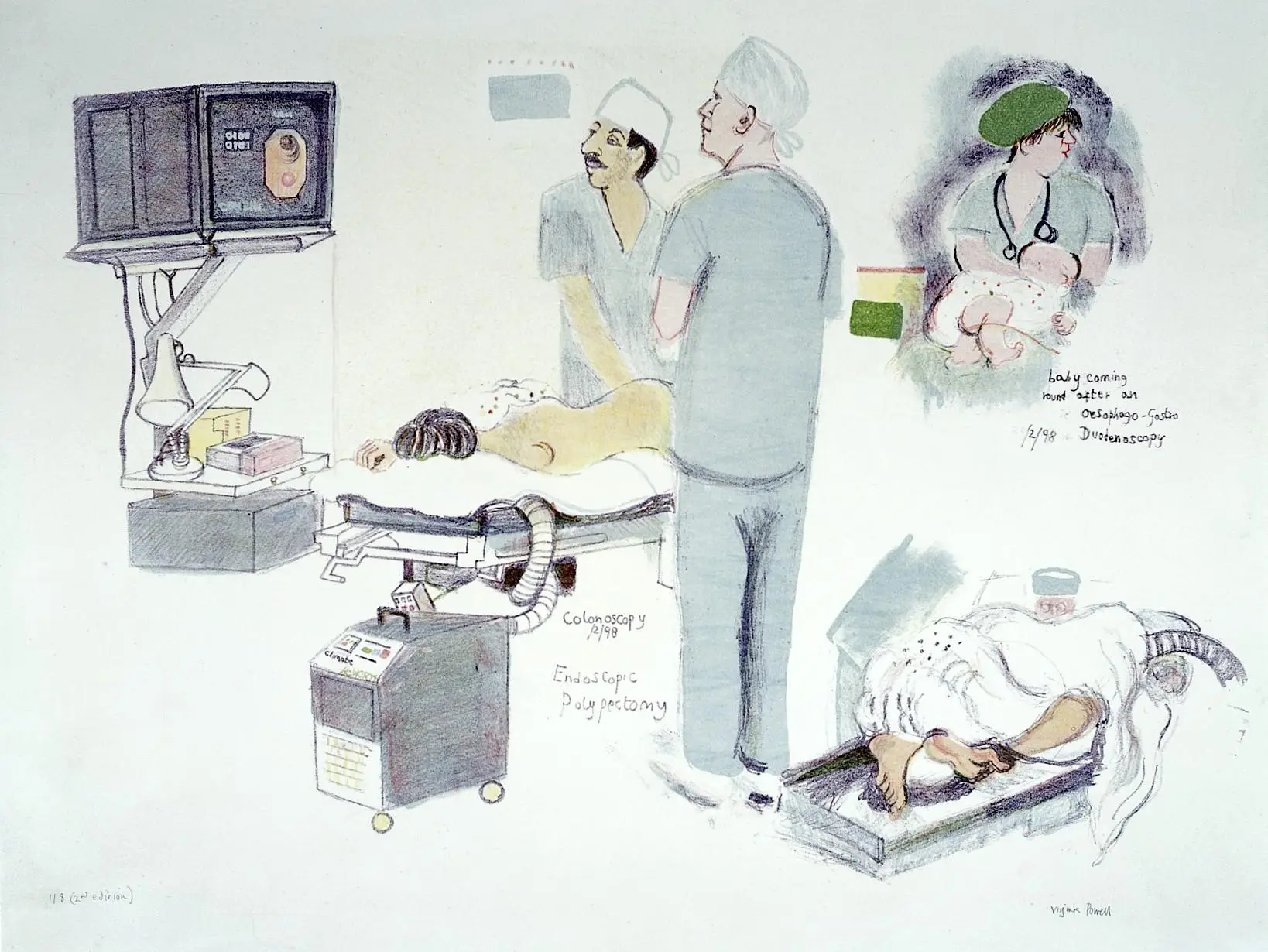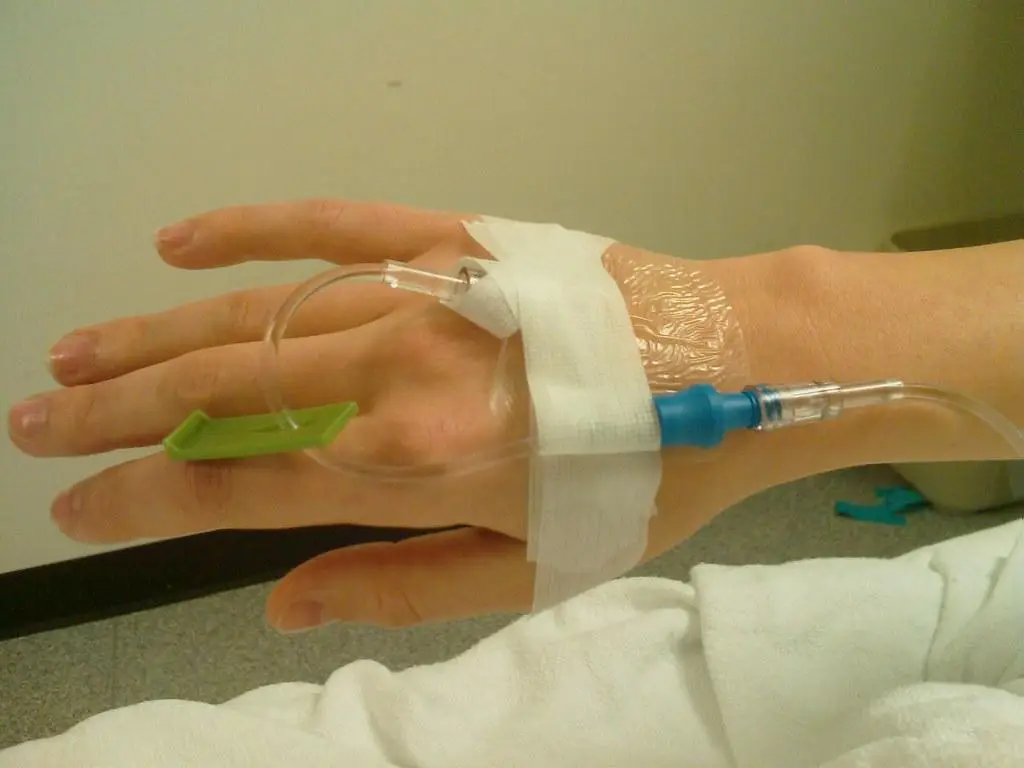Are you curious about colonoscopy and the importance of gut health? Look no further! In a recent YouTube video titled “The Inside Scoop: All About Colonoscopy & Gut Health,” experts dive deep into the world of colorectal cancer prevention and detection through colonoscopy screenings. Colonoscopy is like a superhero in the realm of Health Care, with the ability to detect and remove pre-cancerous polyps, ultimately reducing the risk of developing colon cancer by up to 80 percent. It’s recommended for most individuals to begin regular screening starting at the age of 45. So, what happens during a colonoscopy? How can you ensure you’re receiving appropriate screenings? Stay tuned as we explore all these topics and more in this blog post. Let’s jump in and learn all you need to know about colonoscopy and colon health!
– The Importance of Colonoscopy in Preventing Colorectal Cancer

The Inside Scoop: All About Colonoscopy & Gut Health
Colonoscopy plays a vital role in detecting and preventing colorectal cancer, making it a true superhero in the world of Health Care. According to the American Cancer Society, colonoscopy has the ability to detect and remove pre-cancerous polyps, reducing the risk of developing colon cancer. In fact, studies estimate that colonoscopy can prevent up to 80 percent of colorectal cancers.
The World Health Organization reports that colorectal cancer is the third most commonly diagnosed cancer worldwide, with approximately 2 million new cases reported in 2022. The risk of developing colorectal cancer increases with age, making it recommended for most people to begin regular screening with colonoscopy starting at the age of 45.
During a colonoscopy, you’ll be given a gentle sedative to help you relax before a long, flexible tube called a colonoscope is inserted into your rectum and guided through your colon. The colonoscope has a tiny camera at its tip, allowing the doctor to examine the lining of your colon and check for any abnormalities like polyps. If any polyps are found, they can be removed during the procedure to prevent the development of cancer.
| Benefits of Colonoscopy: | Common Misconceptions: |
|---|---|
| Prevents up to 80% of colorectal cancers | Some patients and healthcare providers lack awareness of appropriate screening guidelines |
| Can detect and remove pre-cancerous polyps | Unnecessary colonoscopies can be performed when other screening options may have been more appropriate |
– What Happens During a Colonoscopy: A Step-By-Step Guide

Colonoscopy is a crucial procedure for detecting and preventing colorectal cancer. According to the American Cancer Society, colonoscopy can detect and remove pre-cancerous polyps, reducing the risk of developing colon cancer by up to 80%. With colorectal cancer being the third most commonly diagnosed cancer worldwide, regular screening starting at the age of 45 is recommended to catch any potential issues early.
During a colonoscopy, a colonoscope, a flexible tube with a camera at its tip, is inserted into the rectum and guided through the colon. This allows the doctor to examine the lining of the colon and identify any abnormalities, such as polyps. If polyps are found, they can be removed during the procedure. The entire process usually takes about 30 minutes to an hour, with medical professionals monitoring you the whole time.
While colonoscopy is an important screening tool, it’s essential to ensure that it’s appropriate for each individual. Inappropriate colonoscopies, which make up around 30% of cases, refer to procedures performed without a valid medical reason or when alternative screening options would have been more suitable. This highlights the importance of understanding the guidelines for colonoscopy screening and making informed decisions about your gut health.
If you have any concerns or questions about colonoscopy screening, don’t hesitate to consult with your doctor. They can provide you with all the information you need and guide you through the process. Remember, early detection and prevention are key in maintaining optimal gut health!
– Understanding the Risks and Benefits of Colonoscopy Screening

Colonoscopy screening is a crucial tool in the detection and prevention of colorectal cancer. According to the American Cancer Society, this procedure has the ability to detect and remove pre-cancerous polyps, reducing the risk of developing colon cancer by up to 80%. With colorectal cancer being the third most commonly diagnosed cancer worldwide, regular screening starting at the age of 45 is recommended for most individuals.
During a colonoscopy, a long flexible tube called a colonoscope is inserted into the rectum and guided through the colon. This tube is equipped with a tiny camera that allows the doctor to examine the colon lining for any abnormalities, such as polyps. If polyps are found, they can be removed during the procedure. While the procedure itself typically takes about 30 minutes to an hour, it is important to note that serious complications are rare, and the sedative ensures that patients are comfortable throughout.
However, it is essential to be aware of inappropriate colonoscopies, which refer to procedures performed without a valid medical reason or when alternative screening options might have been more suitable. This can occur due to a lack of awareness or understanding among patients and healthcare providers about appropriate guidelines for colonoscopy screening. Being well-informed about the risks and benefits of colonoscopy screening can help individuals make confident decisions about their gut health and overall well-being.
– Addressing Inappropriate Colonoscopies: Ensuring Proper Screening
All right, here’s the inside scoop on colonoscopies and colon health. Colonoscopies play a crucial role in detecting and preventing colorectal cancer, making them superheroes in the world of healthcare. According to the American Cancer Society, colonoscopies can detect and remove pre-cancerous polyps, reducing the risk of developing colon cancer by up to 80%.
The World Health Organization reports that colorectal cancer is the third most commonly diagnosed cancer worldwide, with approximately 2 million new cases reported in 2022. The risk of developing colorectal cancer increases with age, so regular screening with colonoscopy starting at age 45 is recommended for most people.
During a colonoscopy, a gentle sedative is given to help you relax, and a colonoscope is inserted into your rectum and guided through your colon. The colonoscope has a tiny camera at its tip, allowing the doctor to examine the lining of your colon for any abnormalities like polyps, which can be removed during the procedure. While mild cramping or bloating may occur afterward, serious complications are rare.
Unfortunately, approximately 30% of colonoscopies are considered inappropriate. An inappropriate colonoscopy is performed without a valid medical reason or when other screening options might have been more suitable. This can occur due to a lack of awareness or understanding among patients and healthcare providers about the appropriate guidelines for colonoscopy screening.
– Colon Health: Tips for Maintaining a Healthy Gut
All right, let’s talk about colonoscopy and colon health. A colonoscopy is an essential procedure for detecting and preventing colorectal cancer, making it a true superhero in the world of healthcare. The American Cancer Society states that colonoscopy can detect and remove pre-cancerous polyps, reducing the risk of developing colon cancer by up to 80%. With colorectal cancer being the third most commonly diagnosed cancer worldwide, regular screening starting at age 45 is crucial.
During a colonoscopy, a colonoscope, a long flexible tube with a camera at its tip, is gently inserted into the rectum and guided through the colon. This allows the doctor to examine the colon lining for any abnormalities, like polyps, which can be removed during the procedure. Although complications are rare, it’s important to consult with your doctor if you have any concerns or questions regarding the screening.
However, about 30% of colonoscopies are considered inappropriate, meaning they are performed without a valid medical reason or when other screening options might have been more suitable. This can happen due to a lack of awareness among patients and healthcare providers regarding the appropriate guidelines for colonoscopy screening. Avoiding unnecessary procedures is essential for maintaining a healthy gut and preventing complications. So, make sure to stay informed and discuss your screening options with your healthcare provider.
– When to Start Screening for Colon Cancer: Guidelines and Recommendations
Colonoscopy plays a vital role in detecting and preventing colorectal cancer, making it a true superhero in the world of Health Care. According to the American Cancer Society, colonoscopy has the ability to detect and remove pre-cancerous polyps, reducing the risk of developing colon cancer. Studies estimate that colonoscopy can prevent up to 80 percent of colorectal cancers. The World Health Organization reports that colorectal cancer is the third most commonly diagnosed cancer worldwide, with approximately 2 million new cases reported in 2022.
The risk of developing colorectal cancer increases with age, which is why it’s recommended for most people to begin regular screening with colonoscopy starting at the age of 45. Like any medical procedure, colonoscopy carries a slight risk of complications, but it’s important to note that serious complications are rare. If you have any concerns or questions about colonoscopy screening, don’t hesitate to reach out to your doctor, as they can provide you with all the information you need and guide you through the process.
During a colonoscopy, you’ll be given a gentle sedative to help you relax, and a long flexible tube called a colonoscope is inserted into your rectum and guided through your colon. The colonoscope has a tiny camera at its tip, allowing the doctor to examine the lining of your colon and check for any abnormalities like polyps. If any polyps are found, they can be removed during the procedure. Colonoscopy screening typically takes about 30 minutes to an hour, and you’ll be monitored by medical professionals throughout the entire process.
However, it’s important to note that not all colonoscopies are considered appropriate. An inappropriate colonoscopy refers to a procedure that is performed without a valid medical reason or when other screening options might have been more suitable. This can happen due to a lack of awareness or understanding among patients and healthcare providers about the appropriate guidelines for colonoscopy screening, leading to unnecessary procedures being performed when alternative methods could have been more suitable.
– The Role of Healthcare Providers in Educating Patients About Colonoscopy
Colonoscopy plays a vital role in detecting and preventing colorectal cancer, making it a true superhero in the world of Health Care. According to the American Cancer Society, colonoscopy has the ability to detect and remove pre-cancerous polyps, reducing the risk of developing colon cancer. Studies estimate that colonoscopy can prevent up to 80 percent of colorectal cancers.
The World Health Organization reports that colorectal cancer is the third most commonly diagnosed cancer worldwide, with approximately 2 million new cases reported in 2022. The risk of developing colorectal cancer increases with age, and it’s recommended for most people to begin regular screening with colonoscopy starting at the age of 45. Like any medical procedure, colonoscopy carries a slight risk of complications, but it’s important to note that serious complications are rare.
If you have any concerns or questions about colonoscopy screening, don’t hesitate to reach out to your doctor. They can provide you with all the information you need and guide you through the process. Remember, early detection is key in the fight against colorectal cancer. Stay informed, stay proactive, and prioritize your gut health.
Q&A
Q: What is the importance of a colonoscopy in maintaining gut health?
A: A colonoscopy plays a vital role in detecting and preventing colorectal cancer, making it a true superhero in the world of healthcare. Studies estimate that colonoscopy can prevent up to 80% of colorectal cancers, reducing the risk of developing colon cancer.
Q: At what age is it recommended to start regular screening with colonoscopy?
A: Most people are recommended to begin regular screening with colonoscopy starting at the age of 45, as the risk of developing colorectal cancer increases with age.
Q: What happens during a colonoscopy procedure?
A: During a colonoscopy, a patient is given a gentle sedative to help them relax, and a long flexible tube called a colonoscope is inserted into their rectum and guided through their colon. A tiny camera at the tip of the colonoscope allows the doctor to examine the lining of the colon for any abnormalities like polyps.
Q: What are some potential risks or complications of a colonoscopy?
A: Like any medical procedure, a colonoscopy carries a slight risk of complications, but it’s important to note that serious complications are rare. It’s recommended to reach out to your doctor if you have any concerns or questions about the screening.
Q: What is considered an inappropriate colonoscopy?
A: An inappropriate colonoscopy refers to a procedure that is performed without a valid medical reason or when other screening options might have been more suitable. This could be due to a lack of awareness or understanding about the appropriate guidelines for colonoscopy screening.
Final Thoughts
As we wrap up our discussion on colonoscopy and gut health, it’s important to remember the significant role that colonoscopy plays in preventing and detecting colorectal cancer. With the ability to remove pre-cancerous polyps and reduce the risk of developing colon cancer by up to 80%, it truly is a superhero in the world of healthcare.
If you are due for a colonoscopy screening, don’t hesitate to reach out to your doctor with any concerns or questions. Remember, serious complications from a colonoscopy are rare, and the benefits of early detection far outweigh the risks.
We hope this video has provided you with valuable information on what to expect during a colonoscopy and the importance of following the recommended screening guidelines. Stay informed, take care of your gut health, and prioritize your overall well-being. Thank you for watching!



